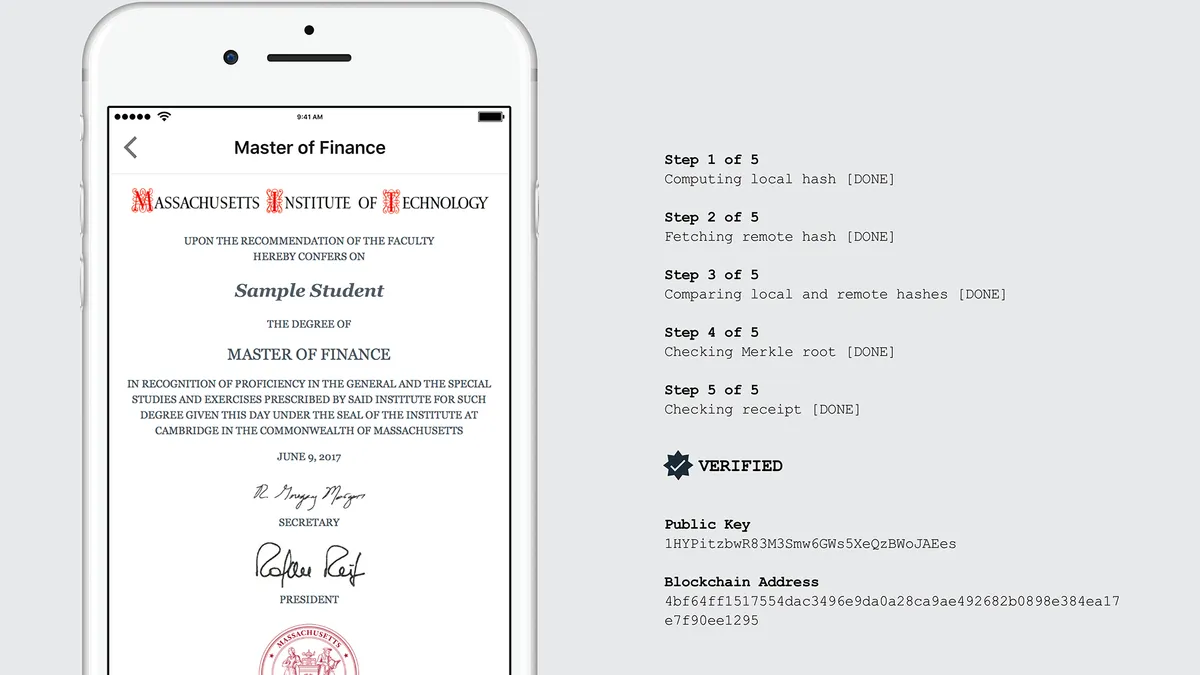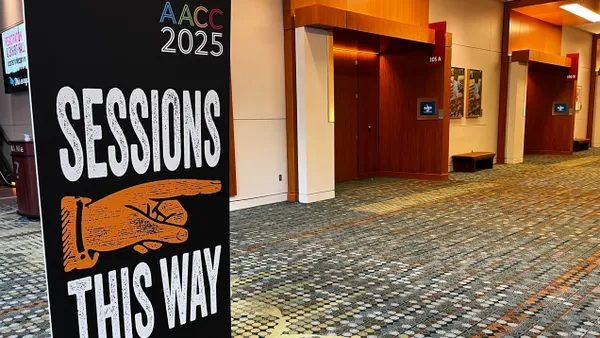Dive Brief:
- In a new white paper, a workforce policy advisory board established by the Trump administration outlines the steps required to develop and successfully implement interoperable learning records (ILRs), which are compilations of peoples' traditional and hands-on learning experiences.
- ILRs are already being piloted as a way to readily and securely share such information with educational institutions and employers by using vendor-agnostic technology that doesn't require direct coordination or synchronization.
- The board sees broader potential for ILRs and suggests promoting that growth by creating a public list of pilot projects, developing a plan for implementing ILRs and bringing a basic ILR to market.
Dive Insight:
Colleges are adding more nondegree credentials, and interest is building around letting learners "stack" them into full certificates and degrees. But institutions lack a way to concisely capture the skills these programs teach — not to mention add in experiences from prior jobs, the military, professional development and on-campus activities — using a medium that allows students to easily share them with future employers and educational institutions.
Although there's interest in addressing the issue through ILRs, also called universal transcripts or universal learner records, the challenges to doing so are steep.
Among them, the report's authors note, is developing a common language for talking about skills and credentials. That includes standardizing how occupations are characterized and offering more details about specific jobs.
Consistency is also needed in how skills are classified and how credentials are defined. After all, with growth in the variety and number of credentials available, and questions about the extent of transparency offered around them, "the lines have blurred" between them and the organizations that offer them, the report explains.
To be effective, ILRs must be easy for students, employers, educators and other stakeholders to access and secure to avoid tampering. That conversation centers on technology, said Scott Pulsipher, president of Western Governors University and a member of the working group, in an interview with Education Dive last week.
The report suggests that a distributed ledger technology, such as blockchain, could be the basis of ILRs. And already, colleges are using blockchain to create transcripts that students can access and share on their own.
The Massachusetts Institute of Technology (MIT), Harvard University and two University of California System campuses are part of a global group exploring how that technology can be used to issue a digital academic record capturing a wider range of students' learning experiences, such as internships and badges.
MIT already offers students a digital diploma (top image), verified against the blockchain, as does Central New Mexico Community College. And Southern New Hampshire University has piloted digital diplomas.
Along with chronicling a person's educational and professional development over time, digital diplomas could also help employers better and more equitably match potential hires with jobs that demand their specific skills and experiences, the report explains.
But whether employers are equipped to work with records other than traditional resumes, transcripts and industry certifications is another question. And it's one that may be addressed as some companies reinvest in learning and development initiatives, according to panelists discussing the future of work at a higher education event in New York earlier this month.














